- Solar advice hub
- Batteries
- How long do solar batteries last?
How long do solar batteries last?
Before you go solar, find out how long your battery will last. Here's the average lifespan, the reasons behind it, and how to extend it.


Why you can trust our content
We know that the solar industry is full of misinformation, but we only use reliable sources, including:
- Our experienced solar experts, installers and system designers
- Our own database of solar & battery system designs
- Authoritative bodies like MCS and the UK government



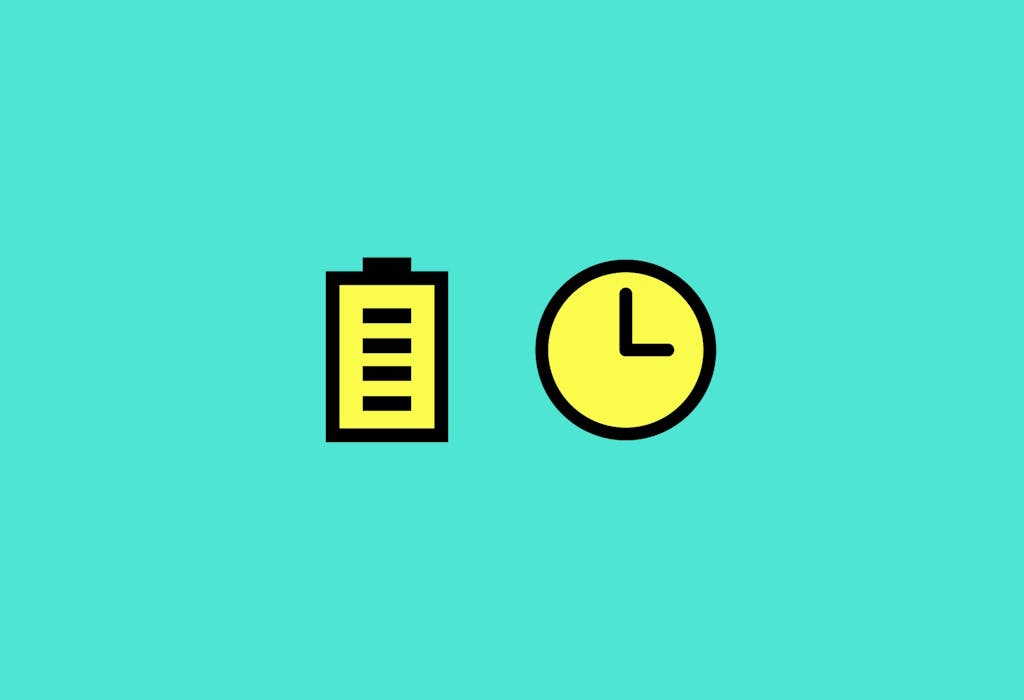
At a glance
If you’re considering whether or not to get a solar battery, one of the deciding factors will be how long they last.
After all, with solar panels typically lasting 30-40 years, you’ll want to know how many battery systems you’ll have to buy to match your panels’ lifespan.
We’ll run through the average lifespan of different types of solar batteries, the factors that contribute to these figures, and how you can extend your battery’s lifespan.
If you’re wondering how much a solar & battery system could save you, just answer a few quick questions below and we'll generate an estimate for you.
What’s the typical lifespan of a solar battery?
The typical lifespan of a solar battery is 10 to 12 years.
That’s about half as long as solar panels usually last, so you’ll have to replace your battery well before your panels come to the end of their useful lifespan.
That doesn’t mean your battery will stop working entirely at that point, though. Instead, its ability to hold onto charge will gradually degrade, just like your phone or laptop’s battery – though solar batteries usually last much longer.
If you want a more accurate way of measuring a battery’s lifespan, you can track the number of total cycles it’s performed – meaning the amount of times it charges up and discharges.
The best batteries can usually go through between 6,000 and 10,000 cycles in total, and most homes will typically cycle through their battery 1.5 times per day – twice in summer and once in winter – to make the most of the best export tariffs.
If you're not sure whether to add a battery to your solar panel system, check out our guide to whether solar batteries are worth it.
Are solar battery lifespans increasing?
Solar battery lifespans are gradually increasing as the technology improves.
Lithium-ion solar batteries are now the most popular type of battery, which means the average lifespan is longer, as the alternatives usually only last a few years.
This gap is widening, too, with advances in lithium-ion battery technology meaning manufacturers are regularly increasing their products’ lifespans.
Another feature of batteries that’s getting better is the depth of discharge (DoD) – that is, the maximum percentage of a battery’s capacity you can use without risking damage from complete discharge.
So if you have a 5.2kWh battery with an 80% DoD, you should only discharge 4.16kWh before recharging – but fortunately, 100% DoD batteries are becoming increasingly common.
With 100% DoD batteries, there’s no ceiling on how much you can discharge from them, which allows batteries to reach ideal performance levels.
What’s the typical warranty on a solar battery?
The typical warranty for a solar battery is around 10 years.
So as long as you operate your battery according to the instructions provided, you’ll usually be protected if it breaks down within a decade.
Suppliers sometimes include the maximum number of cycles a battery can run before their warranty expires, to safeguard themselves against homeowners who use their batteries unusually frequently.
For instance, Enphase’s warranty on its IQ Battery 5P lasts 15 years or 6,000 cycles – whichever comes first.
Fortunately, there’s growing confidence among manufacturers that their products can withstand even extreme customer habits, as shown by the increasing number offering warranties with unlimited cycles – like GivEnergy’s bestselling Giv-Bat 9.5.
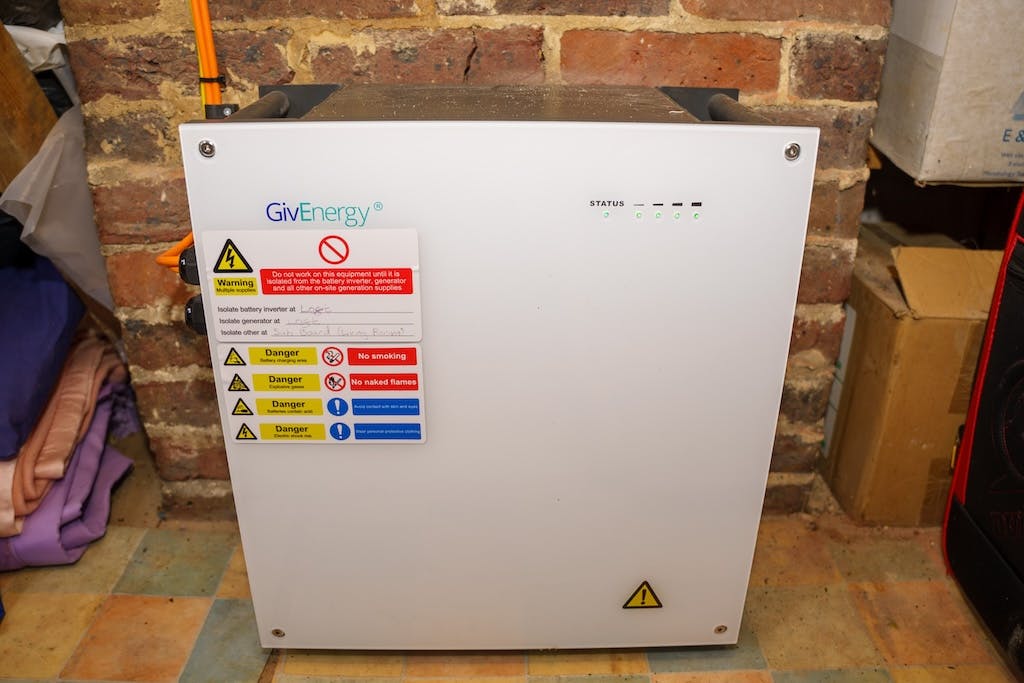
Which type of solar battery lasts the longest?
Lithium-ion solar batteries last the longest, spending 10-12 years at peak performance.
This is twice the typical lifespan of lithium-ion’s closest rival, the lead-acid battery, which you can also find in most cars.
Lead-acid batteries have a typical lifespan of three to seven years, with the flooded version lasting longer than the sealed model.
And its life expectancy can drop even further if owners don’t keep up with lead-acid batteries’ more extensive maintenance needs.
Why do solar batteries not last as long as solar panels?
Solar batteries don’t last as long as solar panels because they degrade more quickly.
A solar panel’s main components – aluminium, glass, plastic, and silicon – will all outlast the panel itself, and can be recycled once it’s dismantled. A battery’s components simply last for less time – though as we’ve covered above, the technology is improving.
Battery technology is also more vulnerable to substandard operating choices that can shorten a battery’s lifespan.
Whereas customers have little input on how their solar panels function, you can directly control your battery’s number of cycles and whether it exceeds its recommended DoD – and if you work your battery hard, its performance level will drop sooner.
So while the top tier of domestic solar panels still produce around 85% of their peak power after 30 years, at standard test conditions, the best solar batteries can usually run 6,000 to 10,000 cycles before they need replacing.
If you would like to see the savings you could get from a solar & battery system, just answer a few quick questions below and we’ll provide an estimate.
Signs your solar battery needs replacing
There are multiple ways your battery will tell you it needs replacing, all of which are easier to spot if you or your solar supplier monitors the machine from the day it’s installed.
Apart from obvious signs like your battery continually switching off or failing to charge at all, these are the most common indicators:
- It always takes a long time to charge devices. This means the battery’s voltage output has dropped. If it can’t be fixed by an engineer, you need a new battery.
- The battery runs out of charge unusually quickly. If your battery powers your devices for less time than it used to, look into getting a replacement. To draw this conclusion, you’d ideally want to compare how long it provides your home with power on similar days – for instance, a clear day in mid-June – in different years.
- Your battery charges up slowly. This indicates it’s losing the ability to hold onto charge as it receives it from your solar panels. This will almost certainly mean it also discharges more quickly than you’d like.
- The battery is leaking, corroding, or becoming visibly misshapen. This is the easier sign for you to spot with the naked eye. If bumps, bulges, or holes appear on your battery’s surface, the machine is on its last legs, and could soon pose a risk to your home.
How to ensure your solar battery lasts as long as possible
Fortunately, there are actions you can take to extend your battery’s lifespan and keep it performing at a high level.
Treating a solar battery correctly can save you hundreds of pounds per year, and ensure you don’t have to pay for a replacement before its time.
Here are the four main ways to get the most out of your system:
- Maintain and monitor your battery’s performance
- Run a healthy number of cycles
- Respect its recommended depth of discharge
- Keep it in a cool, dry location
1. Maintain and monitor your battery
Maintaining and monitoring your battery is the most important point on this list, since it’s the only way you can quickly discover when and if there’s a problem, and get the issue fixed straight away.
Most batteries now come with an associated app that allows you to track its data and make sure it’s functioning properly, so keep an eye on it.
You can usually check its current and past charge levels, how quickly it charges up, how long it can usually power your household for, and the amount of your solar electricity you use and send to the grid.
After a while, you’ll recognise normal levels and get to know what your battery’s standard performance does – and doesn’t – look like.
If you don’t want to dedicate a significant chunk of time and mental effort to this ongoing task, you could consider Sunsave Plus.
This tailored solar & battery solution comes with 20 years of monitoring and maintenance and includes one out-of-warranty battery replacement, all for a monthly subscription at no upfront cost. This is pretty handy if you're put off by the high cost of solar panels.
2. Run a healthy number of cycles
Running too few or too many cycles can be detrimental to your battery’s lifespan.
One cycle per day is a normal rate for a household with solar panels, though if you have a smart export tariff, it’s often more profitable to run two cycles.
Either of these options are healthy, but any more than two cycles per day will cut its lifespan, which is measured in the number of cycles it’s able to perform effectively.
It also risks causing unnecessary wear and tear to your battery, which can lead to long-term issues that ultimately end up with it breaking down prematurely.
On the other hand, if you leave your battery completely discharged for too long, it’ll start to degrade. You should fully charge your battery at least once per month to keep it working smoothly.
3. Respect its recommended depth of discharge
Each battery comes with a depth of discharge, set by the manufacturer after rigorous testing, that sets a limit for how much of a full charge you should use before charging it again.
For example, Fox ESS’s ECS2900-H2 is a 5.76kWh battery with a DoD of 90%.
That means after you charge it up with electricity from your solar panels or the grid, the manufacturer believes you should only use 90% of its total capacity – which equates to 5.18kWh.
If you ignore Fox ESS’s DoD recommendation, and regularly drain this battery’s energy until it’s lower than 0.58kWh, you’ll substantially reduce its lifespan for no good reason.
4. Keep it in a cool, dry location
Solar batteries work best in mild surroundings.
With climate change increasingly causing extreme temperatures, this means they should ideally be kept inside, in a well-insulated, well-ventilated room.
Keeping your battery indoors also protects it from rain, snow, and hail. Modern batteries can deal with some moisture, but a torrential downpour or heavy snow can still wreak havoc.
Even if they don’t get drenched, batteries still suffer in the cold. Freezing conditions raise their internal resistance, restricting their ability to release or hold onto energy.
How long do solar batteries store electricity for?
Solar batteries can store a full charge of electricity for anywhere from three to 17 years.
All batteries lose charge if they’re not used for long periods of time, and solar batteries are no different – but lithium-ion models now only lose between 0.5% and 3% per month.
That means it typically takes between 33 and 200 months for a full charge to dwindle to nothing, though this figure rises if the battery is kept in particularly hot conditions.
You shouldn’t test this though, as it’d damage your battery and shrink its useful lifespan.
A regular schedule of one or two cycles every day is ideal for your battery’s health, but if you’re due to be away from home for a few months, getting someone to cycle through the battery every few weeks should keep it in good shape.
Next steps
When maintained properly, solar batteries can help you make the best use of your solar electricity for around 10-12 years, helping you save thousands of pounds.
However, they still last considerably less time than solar panels, which have a typical lifespan of 25-30 years – meaning you’ll usually need to buy at least two solar batteries over the system’s duration.
Another option is to get a quote for Sunsave Plus, which offers 20 years of monitoring and maintenance, including out-of-warranty battery replacement – so when your battery breaks down after 10-15 years of excellent treatment, you can get a free replacement.
If you’re wondering how much a solar & battery system could save you, just answer a few quick questions below and we’ll provide you with an estimate.
Solar battery lifespan: FAQs
Related articles
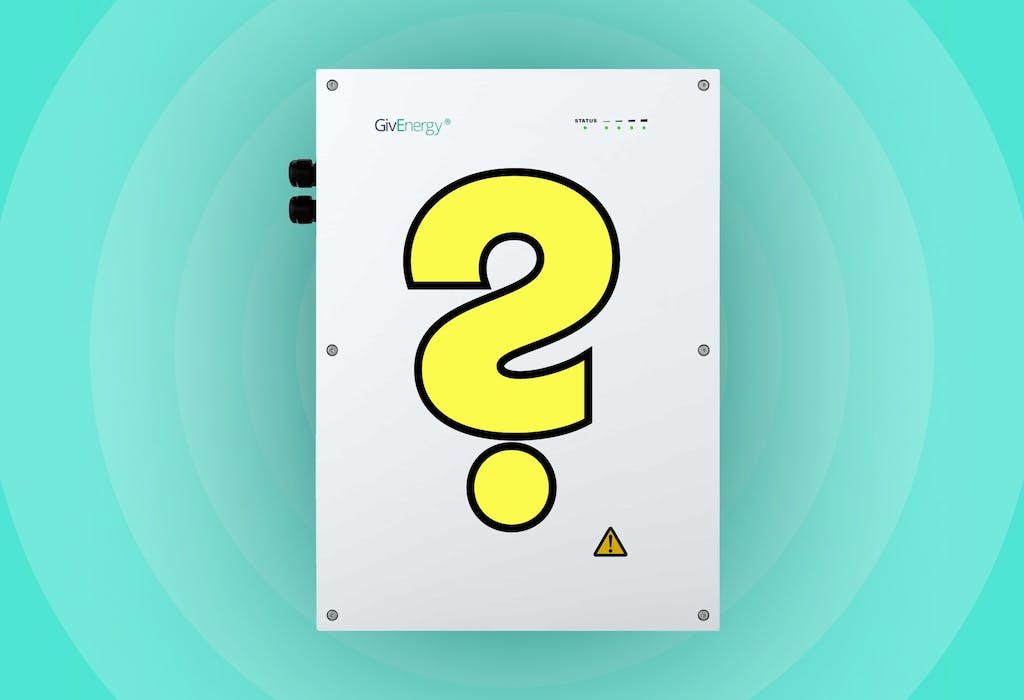
Are solar batteries worth it?
Read full story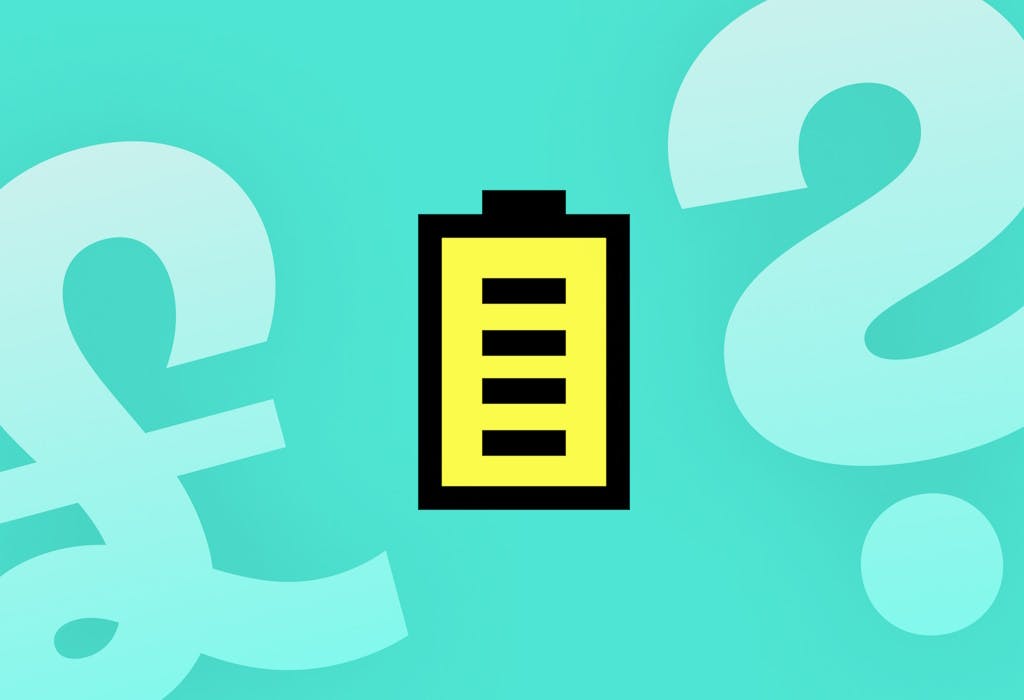
How much does a solar battery cost in the UK?
Read full story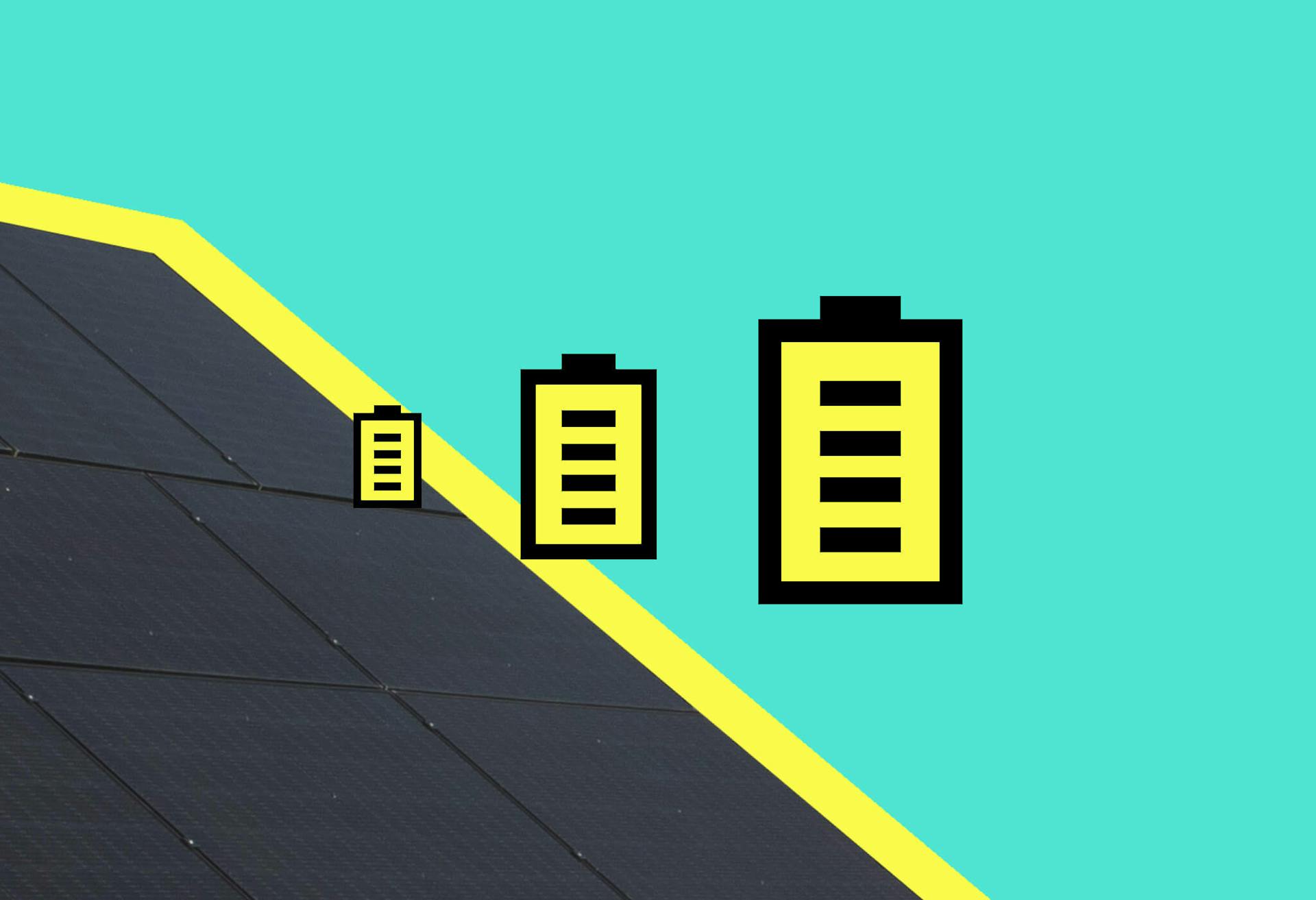
What size solar battery do I need?
Read full story
The Sunsave Guarantee: explained
Read full story
Written byJosh Jackman
Josh has written about the rapid rise of home solar for the past six years. His data-driven work has been featured in United Nations and World Health Organisation documents, as well as publications including The Eco Experts, Financial Times, The Independent, The Telegraph, The Times, and The Sun. Josh has also been interviewed as a renewables expert on BBC One’s Rip-Off Britain, ITV1’s Tonight show, and BBC Radio 4 and 5.